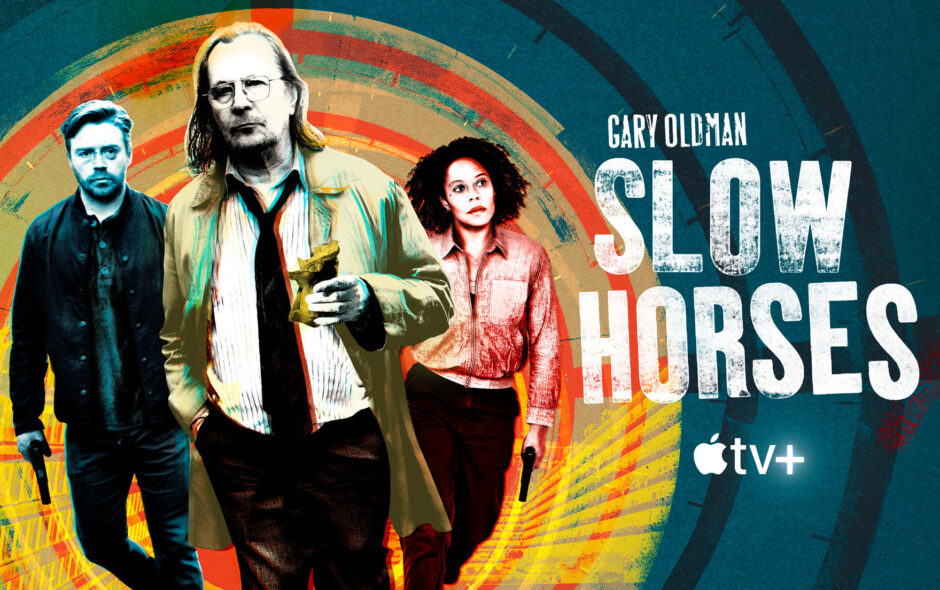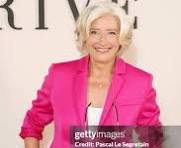Season 5 of Slow Horses continues the series’ remarkable balancing act between espionage thriller and character study, but this time the canvas feels wider, the stakes more pressing, and the emotions sharper than ever before. From the opening scenes, there is a sense that the world outside Slough House is growing increasingly dangerous, and that these discarded agents, once treated as little more than bureaucratic detritus, are now the only ones capable of navigating the storm. This season adapts London Rules, one of Mick Herron’s most layered novels, and in doing so elevates the show into new territory, where satire, suspense, and tragedy intertwine in a way that feels both timely and timeless.
At the center, of course, remains Gary Oldman’s Jackson Lamb, a role that has quickly become one of the actor’s signature creations. His portrayal of the slovenly, chain-smoking, brutally acerbic spymaster has lost none of its sting. He still slouches through the dingy corners of Slough House with a contemptuous wit, dismantling both adversaries and allies with equal glee. Yet, what’s striking in this fifth season is the undercurrent of pathos beneath his vulgar jokes and disheveled bravado. Lamb has always been a man out of step with modern MI5, a relic who knows too much to be discarded but too troublesome to be fully embraced. Here, though, the show makes it clear that he is not simply surviving but enduring, carrying a burden of history that weighs more heavily as events spiral beyond his control. Oldman lets the cracks show, even if only fleetingly, and it’s these glimpses of vulnerability that give the character his lasting power.
This season, however, does not rest entirely on Lamb’s shoulders. One of the most refreshing choices is the way the narrative brings other members of Slough House to the fore. Christopher Chung’s Roddy Ho, once the comic relief and the smug tech wizard, takes on a far more pivotal role. His storyline begins almost innocuously with a romantic entanglement, but that relationship quickly spirals into a threat that jeopardizes not only his own safety but also national security. What might have been played as another joke at Roddy’s expense instead becomes an exploration of vulnerability and misplaced trust, giving Chung the space to stretch the character into someone viewers can feel for rather than merely laugh at. His growth from an awkward sideshow into a crucial figure in the unfolding drama is one of the season’s most rewarding arcs.
The other so-called “slow horses” are not left in the margins either. River Cartwright remains the moral compass of the team, though he too finds himself mired in choices where right and wrong blur. Louisa, still reeling from the traumas of earlier seasons, faces her own moral quandaries, including a romantic subplot that is as ambiguous as it is unsettling. Shirley, meanwhile, shoulders grief and rage following the loss of Marcus, and her journey gives the season moments of raw emotional honesty that cut through the spy games. Collectively, the Slough House agents feel more like a fractured family than ever before, scarred by loss but bound together by necessity, and it is within their shared pain that the heart of the series beats most strongly.
Narratively, the season leans into political satire while never losing sight of the danger at hand. A string of violent attacks rattles London, and the hunt for those responsible pulls Slough House into the murky overlap between security and politics. There are echoes of recent real-world anxieties, but the show never stoops to obvious parallels. Instead, it thrives on unease, reminding us that the stability of institutions is always more fragile than it appears. In true Slow Horses fashion, the political is always personal, and the consequences are most deeply felt not in grand speeches or sweeping policies but in the bruised and battered lives of these sidelined agents.
Visually, the series maintains its bleak, atmospheric style, finding poetry in the shadows of London streets and the clutter of Slough House’s offices. The cinematography underscores the isolation of the characters, trapping them in cramped rooms even as the world outside seems poised to implode. That visual claustrophobia mirrors the sense of paranoia threaded throughout the season, where no conversation feels safe and no ally can be trusted without suspicion. The pacing reflects this too, starting with a slow burn before escalating into a tightly wound spiral of betrayal, revelation, and dread. By the time the climax arrives, the tension is nearly unbearable, and the fallout is both devastating and deeply earned.
What makes Season 5 particularly effective is its refusal to offer easy answers. The moral lines are blurred, and even victories feel tainted by compromise. Characters are forced to choose between loyalty and survival, and those choices rarely lead to clean resolutions. That ambiguity is precisely what sets the series apart from more conventional spy dramas. Here, heroism is not clean or celebratory—it is messy, reluctant, and often indistinguishable from failure. The questions linger long after the credits roll: what does loyalty mean when the system itself is corrupt, and what price must be paid to protect a nation that seems determined to discard you?
If there are shortcomings, they lie in occasional moments of exposition that feel overly heavy, as if the writers fear the audience might lose track of the complex web of plots and counterplots. There are also a few emotional beats that threaten to tip into melodrama, though the performances are so strong that they mostly hold the line. These are minor quibbles, however, in a season that otherwise demonstrates remarkable control of tone and storytelling.
In the end, Season 5 of Slow Horses cements the series as one of the most compelling espionage dramas on television. It is grimly funny, heartbreakingly human, and unflinchingly relevant. Oldman remains the gravitational center, but it is the ensemble’s shared scars, fears, and fragile loyalties that give this chapter its greatest weight. The show reminds us that even the discarded, the misfits, and the overlooked can carry the fate of nations on their backs. They may be slow horses, but they are still running the race, and this season proves they are more vital than ever.




